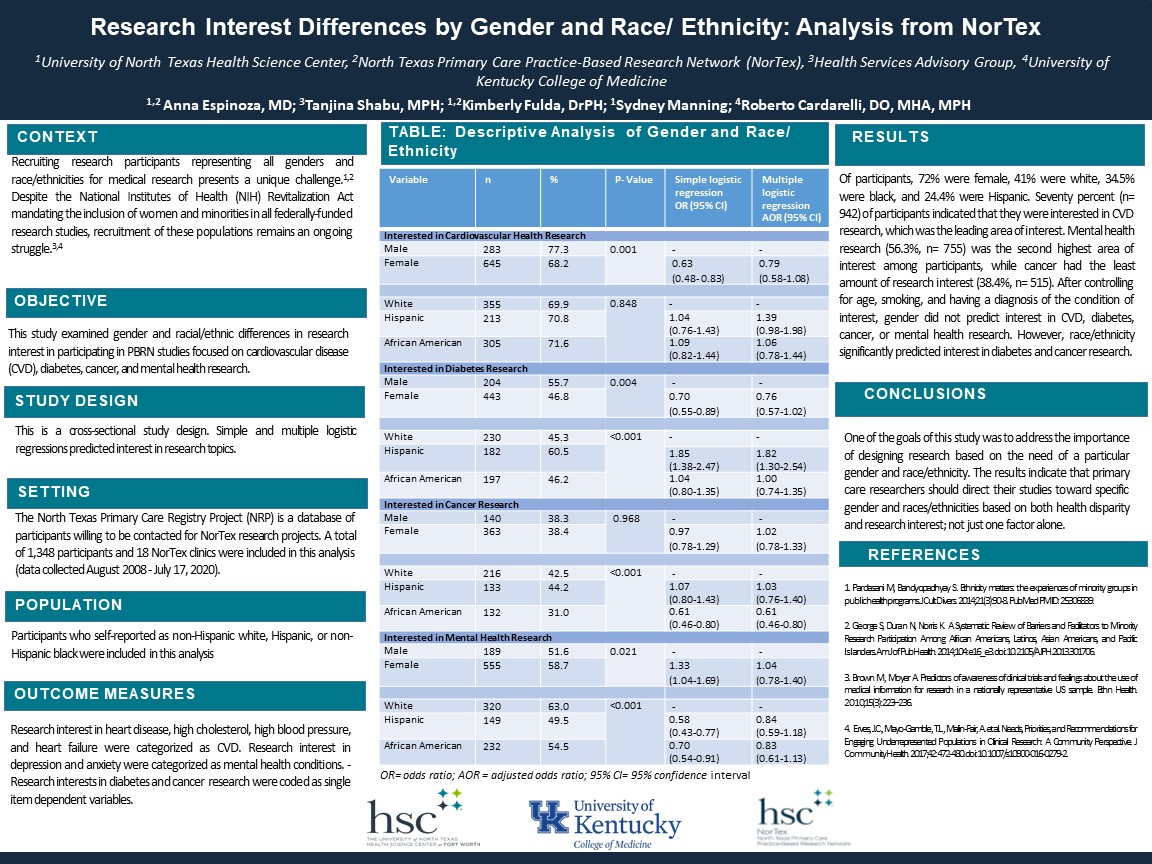PCR061: Research Interest Differences by Gender and Race/ Ethnicity: Analysis from NorTex (Pearls)
Anna Espinoza, MD; Tanjina Shabu, MPH; Kimberly Fulda, DrPH; Sydney Manning; Roberto Cardarelli, DO, MHA, MPH
Abstract
Objective: This study examined gender and racial/ethnic differences in research interest in participating in PBRN studies focused on cardiovascular disease (CVD), diabetes, cancer, and mental health research.
Study Design: This is a cross-sectional study design. Simple and multiple logistic regressions predicted interest in research topics.
Setting or Dataset: The North Texas Primary Care Registry Project (NRP) is a database of participants willing to be contacted for NorTex research projects. A total of 1,348 participants and 18 NorTex clinics were included in this analysis (data collected August 2008 - July 17, 2020).
Population Studied: Participants who self-reported as non-Hispanic white, Hispanic, or non-Hispanic black were included in this analysis.
Outcome Measures: Research interest in heart disease, high cholesterol, high blood pressure, and heart failure were categorized as CVD. Research interest in depression and anxiety were categorized as mental health conditions. Research interests in diabetes and cancer research were coded as single item dependent variables.
Results: Of participants, 72% were female, 41% were white, 34.5% were black, and 24.4% were Hispanic. Seventy percent (n= 942) of participants indicated that they were interested in CVD research, which was the leading area of interest. Mental health research (56.3%, n= 755) was the second highest area of interest among participants, while cancer had the least amount of research interest (38.4%, n= 515). After controlling for age, smoking, and having a diagnosis of the condition of interest, gender did not predict interest in CVD, diabetes, cancer, or mental health research. However, race/ethnicity significantly predicted interest in diabetes and cancer research.
Conclusion: One of the goals of this study was to address the importance of designing research based on the need of a particular gender and race/ethnicity. The results indicate that primary care researchers should direct their studies toward specific gender and races/ethnicities based on both health disparity and research interest; not just one factor alone.

Jack Westfall
jwestfall@aafp.org 11/20/2021Great poster and abstract. thanks